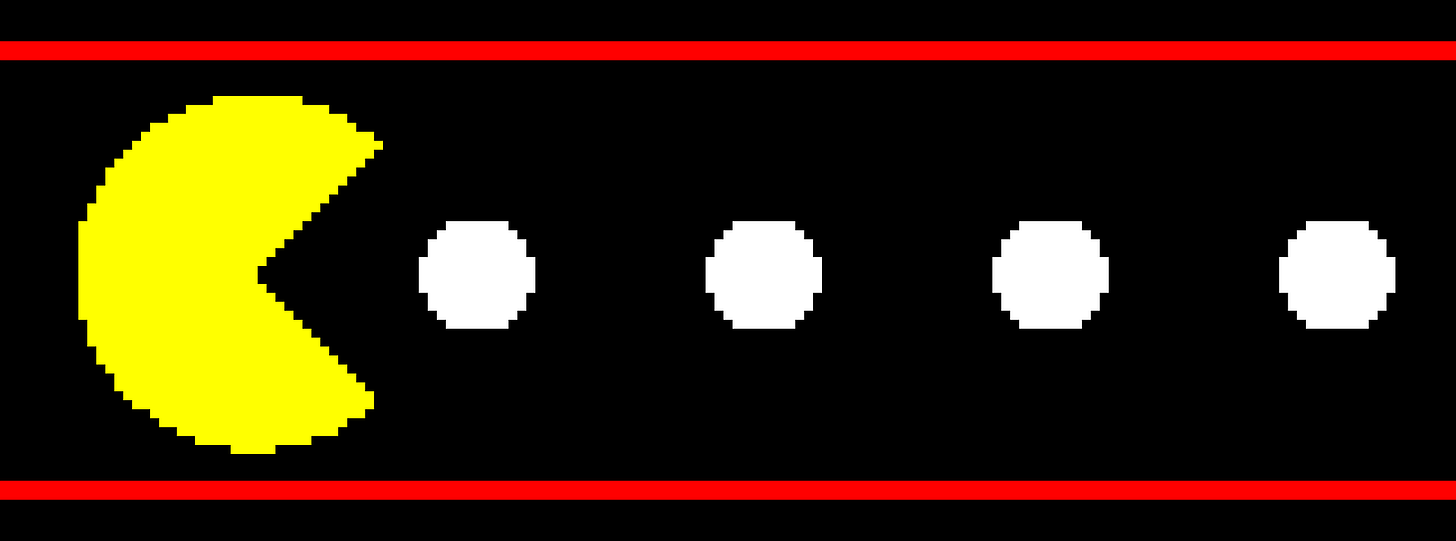A brief on self-eating
AKA autophagy AKA the key to longevity
Hello! I’m keeping this week’s newsletter short, as everyone’s preparing for the upcoming holidays 🎉, but I just wanted to give a brief on autophagy, or the process of our cells eating themselves!
Every year around this time, we’re reminded of good old American traditions like overconsumption and indulgence. This spills over into the wellness industry too. In our more-is-more culture, we’re always looking for the latest supplement or gadget to add to our health regimens. Little do we know we have the most advanced gadget on the planet in front of us— our bodies.
This can’t be illustrated more clearly than with autophagy. In simple terms, autophagy is the process of a cell cleaning out damaged proteins or other defunct components. It’s called “auto-”phagy because the cell literally cleans itself up and then recycles or ejects the waste material to repair itself— basically housekeeping! Dr. Roberta Gottlieb, director of Molecular Cardiobiology at the Cedars-Sinai Smidt Heart Institute describes autophagy as the process of taking out garbage that’s accumulated in our cells. Autophagy allows the cell to return to homeostasis, so it’s critical to cellular health.
If autophagy isn’t happening regularly, proteins and toxins can accumulate inside the body, contributing to accelerated aging, cancer, and neurodegenerative diseases. This explains why researchers have recently discovered protein deposits in the brains of patients with Alzheimer’s; the dead proteins aren’t leaving the body and instead are accumulating in the brain.
So how do we trigger autophagy to gain all its benefits? Here’s the kicker— we do nothing! Autophagy occurs when glucose and insulin levels drop significantly, i.e. autophagy occurs most effectively during periods of fasting. That’s right, we don’t need a fancy diet or health supplement to reap the benefits of one of the most useful processes our bodies can perform. We just be 😌.
I’m a fan of intermittent fasting for as long as it feels comfortable. Intermittent fasting allows our bodies to take a break from energy-intensive digestion and enables autophagy.
In 2016, biologist Yoshinori Ohsumi won the Nobel prize for his research on autophagy. He showed how cells recycle waste to survive and how it can be supportive to the overall organism. Before Ohsumi, no one really looked into autophagy. Seungmin Hwang, an assistant professor the University of Chicago, said, “Without him [Ohsumi], the whole field doesn’t exist.” Of course, humans have observed the benefits of fasting for thousands of years, but Ohsumi’s work substantiated the mechanism behind it.
Since Ohsumi’s groundbreaking work in 2016, thousands of studies have looked at the relationship between autophagy and health. Research is pointing to a positive relationship between autophagy and longevity, which explains why centenarians generally eat less food than the rest of us. So, give someone a truly invaluable gift this year and teach them about autophagy. They’ll thank you for the rest of their long life 😎
Happy Holidays!
I hope you have a wonderful holiday! Speak to you next week in our last newsletter of 2021!
♥️,
Zeina

